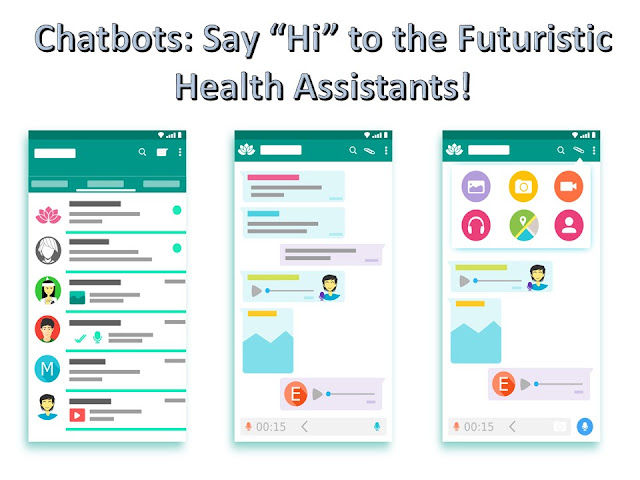voice controlled bots or health apps are anticipated to replace the messaging
apps soon enough. In healthcare industry, they’ve the potential to reduce the
stress from the shoulders of medical professionals regarding easy-to-diagnose
health concerns and issues that can be managed conveniently.
learning like Apple’s Siri and Alexa from Amazon give science-fiction a
reality shape. Then there’re cognitoys
programmed to support cognitive development in smaller children through AI in a gentle and fun way. Indeed,
personal health assistants on our smart devices became a must for various
medical needs.
Love
of Siri by half a million people:-
thousands of people say “good morning” to
Alexa everyday expressing their love
for the AI assistant and more than 250,000
even proposed marrying it! This is perhaps the reason we should be extra
careful on complicated relationship humans have with intelligent machines before
they completely take over our lives. Let’s begin with digital health apps and
Chatbots!
The
“tomorrow” of messaging:-
often exceed supply! Take for instance holidays in December 2016 when Amazon
Echo became a with the ecommerce giant’s primary website and its app actually
“sold out” of the Echo voice-controlled speaker for many
weeks.
speaker and the built-in microphones are able to hear from across a room. Statistics
show a clear trend that Chatbots are
likely to take over messaging applications of yesteryear in many areas also
debuting in markets that you might’ve never imagined; healthcare for instance!
apps and Chatbots offer much more than minimalist messaging applications and to
find a doctor in Dubai as well or
perhaps tending an upset child! Other incredible possibilities are using these
assistants to play your favourite music, take notes and even order food. Being
voice controlled, they’re likely to become dynamics of family communication!
Chatbots
becoming a success story:-
left unanswered by a physician which at times became a real concern for
patients; leaving them in a state of confusion! Further, doing Google search for the right answer can
be challenging as most of the patients are unsure if medical content is
authentic and actually from a legitimate source. The biased approach is
because, where internet is a blessing, it’s also full of dubious news and
misleading sites that may deviate users from achieving their goal.
fill this gap! Patients mustn’t leave their work, travel to the physician’s
clinic only for a 10-second response and such simple things. Altogether, there
isn’t any website that can tell accurately about a disease against a symptom
checker since they aren’t personalised and neither powered by smart algorithms
of the present age.
alternative but it alone lacks the features to answer all your medical
questions. The only solution is digital health chatbots that constantly supports latest
medical innovations and taught by physicians.
Digital assistants & intelligent chatbots present stance:-
Apple’s Siri and the “knowledge navigator” back in 2011,
almost every tech giant plunged in the competition and came up with its own
version. Some of the finest examples are Microsoft
Office Assistant that later became Cortana,
the Google Home and Google Now by Google and Amazon’s Alexa.
Their evolution is indeed for a greater purpose which is the reason each has
been given different names.
performed on making these digital platforms more “human-like” as well as a clue as to give the machines an emotional
background of the human conversation thereby taking a personalized approach to
medical industry and health apps.
Conclusion:-
further details and incredible potential of the digital assistants in
healthcare being discussed in second part of the series.



